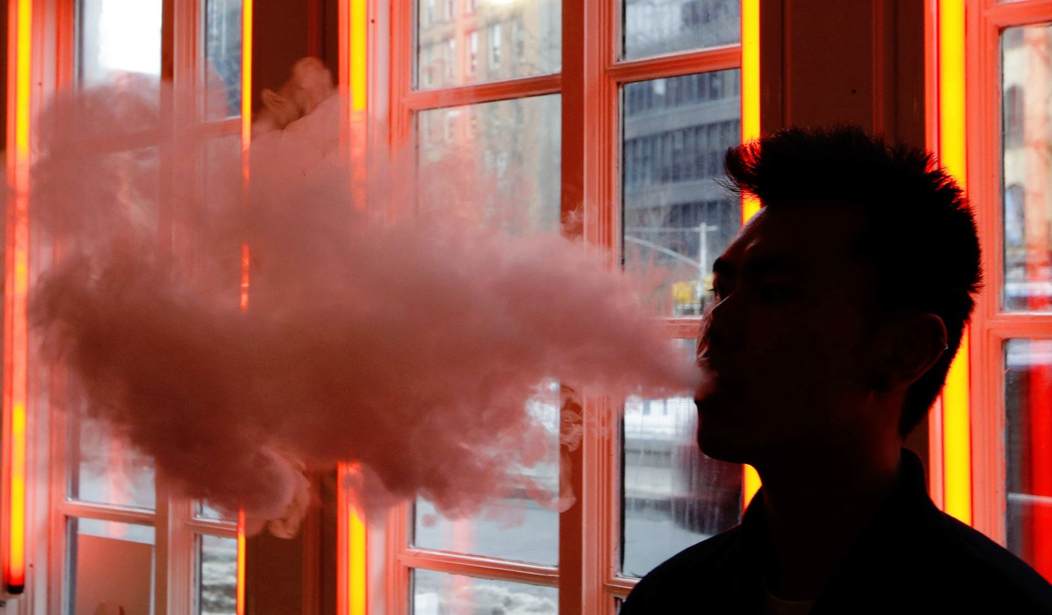Say what you will about moral panics, but they do bring together strange bedfellows! That’s certainly been the case with concerns about flavored vapes. In announcing a forthcoming federal ban on most flavored vapes, President Trump sided with some unusual allies — namely the true-blue states of California and New York. But in truth, this is just another reminder that bipartisan ideas can be just as wrong as partisan ones, and banning flavored vapes will succeed only in pushing vapers back to more harmful cigarettes.
Vaping, and the flavors vapes can come in, arose as an alternative to tobacco for smokers. And despite the narrative that the youth has been vaping like they would eat candy, conventional cigarette use has been steadily dropping for the last two decades — cigarette use among high school seniors has dropped 84 percent between 1998 and 2018, a downward trend that has continued despite the introduction and growth of e-cigarettes to the market.
Now, the wave of national concern about vaping is not unfounded. There have been nearly 400 cases, and at least six deaths, of a mysterious “vaping illness,” from which the only confirmed commonality is vape usage in the previous 90 days. That’s not something that legislators and regulators should ignore.
However, banning flavored vapes is not the answer they seek. There’s strong evidence that this vaping illness comes from consumption of unlicensed, black-market vaping products that use possibly tainted THC oil. Even in states that have legalized recreational marijuana, the low cost that black-market products can offer due to the lack of regulation pushes consumers towards these unregulated outlets, despite the increased risk of products being tainted by other chemicals or pesticides.
Recommended
In this case, flavored vape bans would be the worst possible reaction. Instead of protecting those afflicted by unregulated vaping products, they would ensure that all popular flavored vaping products were unregulated. If the black market is the problem, the last thing regulators should be looking to do is empower the black market by driving vapers towards it.
And smokers that see their access to flavored vapes cut off would be harmed as well. Banning flavored vapes would push smokers not towards abstinence, but instead back towards more harmful traditional cigarettes. Indeed, vapes have proved to be a successful quit method for adult smokers, with twice the success rate as other methods for quitting. We have yet to see similar studies on adolescent use.
These actions by states and the federal government represent short-term thinking of the most dangerous variety. By banning regulated e-cigarette flavors, nicotine addicts are put in a situation where they are almost certain to turn to something far more harmful. Either they return to traditional cigarettes, the harms of which are well-established, or they turn to the black-market products which are likely causing the vape epidemic driving these panicked regulations in the first place. Prohibition, after all, hardly has a good track record in this country.
Instead of moving forward with these shortsighted bans, President Trump and the governors pushing these bans should first look for more of what usually drives good policy — evidence. Taking shots in the dark in an attempt to stop an illness with uncertain causes would likely do nicotine addicts more harm than good.
Andrew Wilford is a policy analyst with the National Taxpayers Union Foundation, a nonprofit dedicated to tax policy research and analysis at all levels of government.

























Join the conversation as a VIP Member